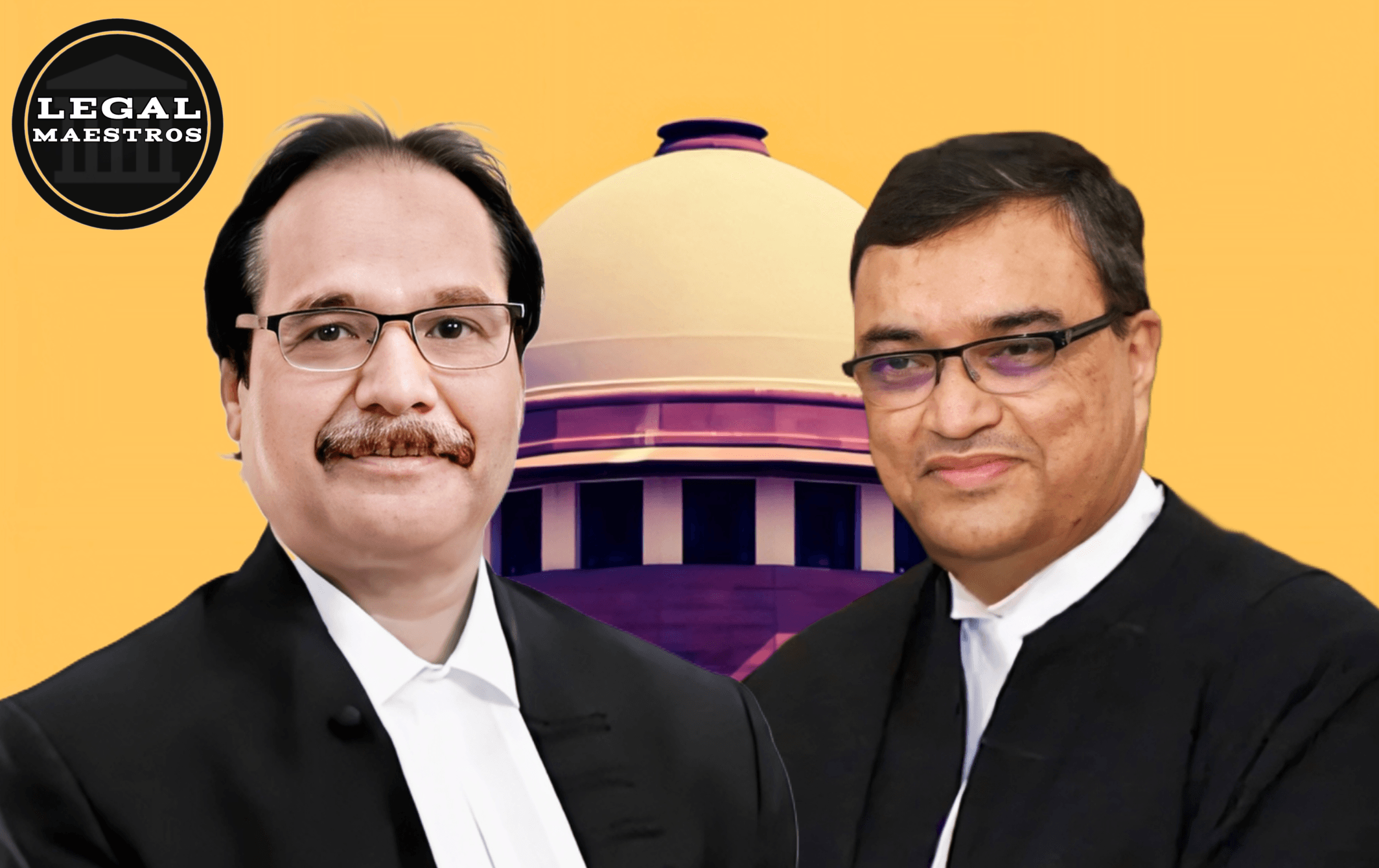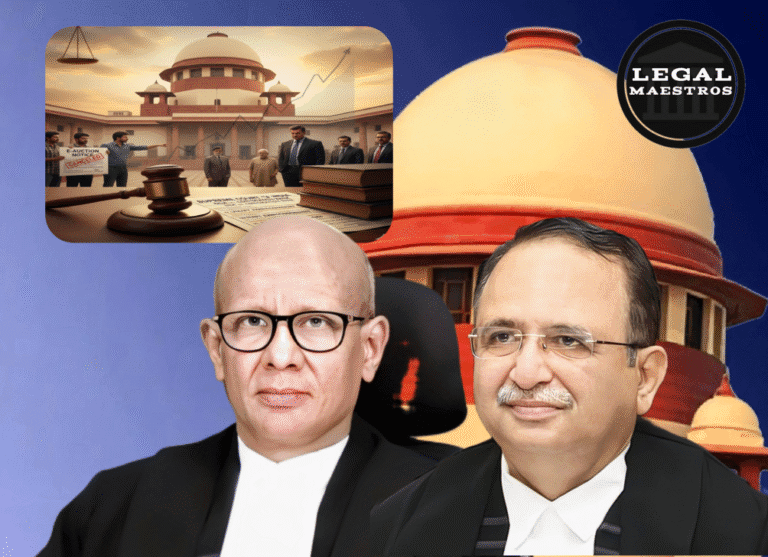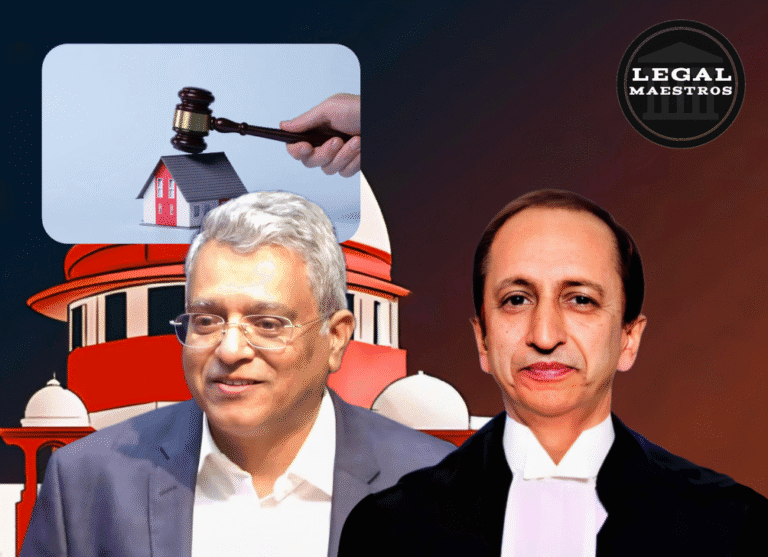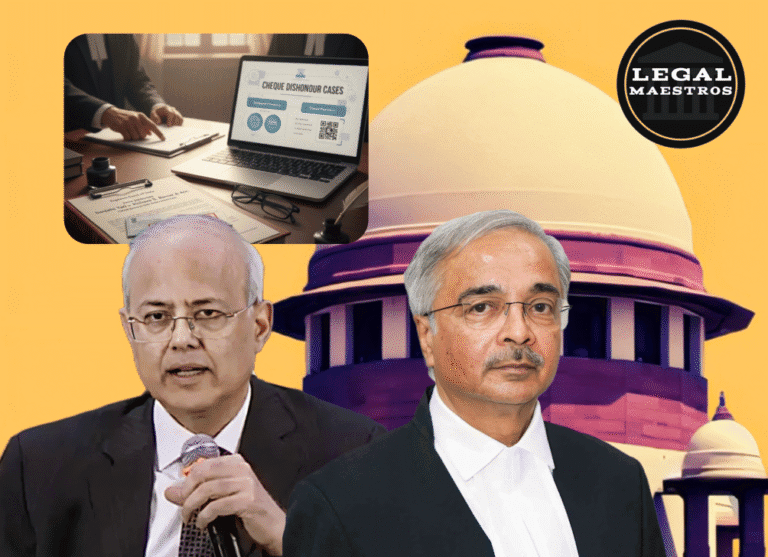
The case of State of U.P. v Ram Prakash Singh was an instrumental reiteration of the rule of natural justice in administrative and service law by the Supreme Court. This case was about disciplinary action against Ram Prakash Singh, an ex-Assistant Engineer working in the District Panchayat of Kushinagar on account of financial irregularities. In spite of the severe accusations of embezzlement, the Court held that the very method, in which the investigation and the following penalties were administered, contravened the legal interests of the worker, especially the mandatory protections accorded to the Uttar Pradesh Government Servants (Discipline and Appeal) Rules 1999.
Short Details of the Case
Ram Prakash Singh worked as an Assistant Engineer from 2004 through 2005. He had been charged with misappropriating approximately 2.5 crores of money together with a junior engineer by fabricating false records regarding drainage and road construction work. Preliminary audit imputed Singh a loss of 30.08 lakh to the exchequer, and it suggested the recovery of 10.25 lakh respondents, which is over 35 per cent of the loss.
Based on this, disciplinary action started in 2006. The details of the relied upon documents were not given to Singh who has been suspended and given a charge sheet. In his response he rejected the allegations and asked to be heard in his own person. He was judged guilty by an enquiry officer without even looking at witnesses and/or making available evidence. Several days before his superannuation (in July 2010), he was dismissed.
Singh disputed the dismissal, which was scuttled by the U.P. State Public Services Tribunal, who annulled the order of dismissal and recommended that a new case be re-instituted at the reply stage. When the new inquiry again failed to meet procedural requirements and extended beyond the Tribunal’s deadline without seeking permission, Singh challenged the second punishment of pension reduction and recovery of ₹10.52 lakh. Both the Tribunal and the Allahabad High Court ruled in his favor. The State appealed to the Supreme Court.
Legal Issues Before the Court
The Supreme Court considered several core questions.
- Whether a punishment can be imposed when no proper inquiry is held, no witnesses are examined, and documents are not proved.
- Whether reliance on an enquiry officer’s report, prepared in breach of procedure and without supplying it to the employee, is valid.
- Whether the disciplinary authority’s failure to furnish the enquiry report vitiates the proceedings.
- Whether proceedings can continue beyond a deadline fixed by a Tribunal without extension.
- Whether the State should get another opportunity to conduct the inquiry properly.
Violation of the Due Process and Rules
The Court found that the entire disciplinary process against Singh was tainted by procedural irregularities. No witnesses were examined in either round of the inquiry. The documents forming the basis of the charges were not provable or even provided to Singh. The enquiry officer based his conclusions solely on the unproven audit reports and Singh’s reply.
The Court emphasized Rule 7(v) of the 1999 Rules, which mandates that when charges are denied, the enquiry officer must call witnesses and record their oral evidence in the presence of the charged employee, allowing cross-examination. Similarly, Rule 9(4) requires that the enquiry report be provided to the employee before a final decision is made. Both rules were blatantly ignored.
Supreme Court’s Analysis of precedent
The Court alluded to some of the most important precedents, which were Roop Singh Negi v. Punjab National Bank, State of U.P. v. Saroj Kumar Sinha and the Constitution Bench landmark case of ECIL v. B. Karunakar. These cases confirmed that even in proceedings which fall within the departmental system, in which scrupulous respect for the rules of evidence is not required, there must be minimum standards of fairness. The accused should also be given a chance to disapprove of the evidence given before him or her.
The Constitution Bench in B. Karunakar held that failure to provide the inquiry report before punishment amounts to a denial of reasonable opportunity, violating natural justice. The Court also examined S.K. Sharma and clarified when procedural violations mandate setting aside an order.
Time-limit violation and Lack of Tribunal Permission
The Tribunal clearly directed that the renewed inquiry must be concluded within three months. The State failed to meet this deadline and never sought an extension. The Court held that once a deadline is fixed by a Tribunal, the State must comply or seek a formal extension; else, any subsequent action becomes non-est law.
Moreover, the Court pointed out that the second round of inquiry was essentially the same as the first—again conducted without oral evidence, without proving documents, and without supplying the report to the respondent. Thus, both inquiries were invalid.
Unreasonable and unjustified action
The Supreme Court observed that Singh was treated badly despite the fact that there was another co-accused, a man by the name Baliram who was not punished when it came to doing the same thing. This discriminatory treatment further undermined the State’s position. Fairness in administrative action requires consistent treatment unless valid distinctions are shown, which the State failed to do.
Findings and Final Judgment
The Supreme Court concluded that Singh had been punished without due process. The disciplinary proceedings were procedurally defective, conducted in breach of mandatory rules, and extended unlawfully beyond the permitted time. There was no proof of guilt based on legal evidence, and the denial of the enquiry report rendered the punishment order void.
In line with this, the Court rejected the decision of the Tribunal, thus ruling that the State had no standing to appeal. It did not see any basis for giving another chance to the State to repeat the inquiry, especially since more than ten years had passed and the respondent had already retired.
General Implications and Meaning
This decision supports the significance of procedural protections regarding disciplinary proceedings, saying that such precautions cannot be treated as a formality which is to protect the rights of employees. Public servants should never be castigated without being heard together with the denial of evidence or where inquiries have been arrived at poorly. The Court’s insistence on compliance with statutory rules, deadlines, and natural justice will guide future disciplinary actions and ensure accountability in state actions.
It also clarifies the importance of judicial timelines and tribunal directions in administrative proceedings. Not following procedural directives is not only a weakness of the State in its case but also weaker than the rule of law.
This ruling in the State of U.P. V Ram Prakash Singh is considered a milestone in the defense of the principles of fairness and justice in the jurisprudence of the service. The definitive and clear attitude of the Supreme Court to the integrity of a procedure will not only defend individual rights but also increase the administration’s discipline and transparency. The decision makes a resounding statement to governments: regardless of how serious the alleged wrongs are, they must be penalized through a fairly and legally shown course.




1 thought on “Upholding Natural Justice in Disciplinary Proceedings By Justices Dipankar Datta and Justice Prashant K.Mishra”